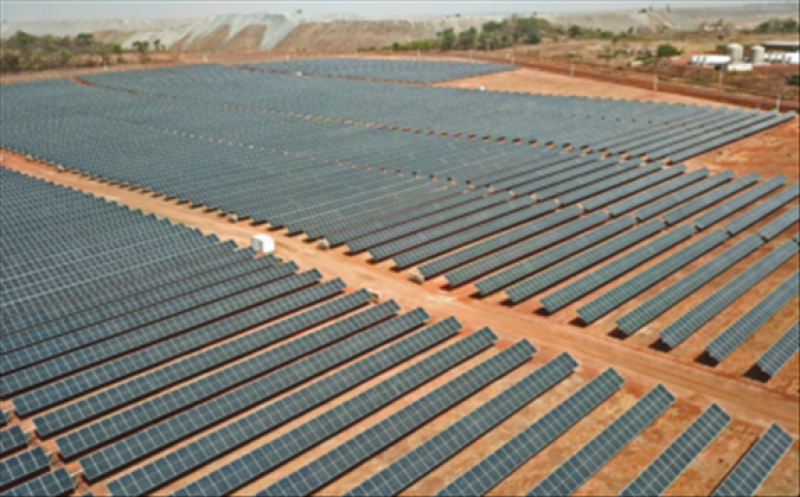Suntrace GmbH and BayWa re, together with B2Gold, have completed commissioning of what they say is the world’s largest off-grid solar-battery hybrid system for the mining industry at the Fekola gold mine in Mali.

The solar-battery hybrid plant was integrated and commissioned successfully with the existing power plant operation, with the solar plant on course to be 100% complete by the end of June.
Hybrid projects such as this, which combine solar energy with conventional energy generation and battery storage, are an effective way to provide reliable power supply day and night in off-grid areas, Suntrace says. “Ideally suited to their needs, B2Gold approved the hybrid project for implementation in July 2019, following completion of preliminary studies by Suntrace and BayWa re.”
The Fekola gold mine operates 24-hours a day. During the daytime, the new 30 MW solar plant allows three out of six heavy fuel oil generators to be shut down; the energy production of the residual three generators could also be significantly reduced. The 15.4 MWh battery storage compensates for energy generation fluctuations and assures a reliable operation, which allows up to 75% of the electricity demand of the gold mine to be covered by renewable energy during the daytime, Suntrace said.
Dennis Stansbury, Senior Vice President at B2Gold, said: “Suntrace and BayWa re have played a vital role in our work towards more sustainable production at Fekola. The implementation of a solar-battery hybrid system was an obvious choice to help achieve this, not only for its environmental credentials, but also its economic viability. This is a landmark project which we expect to pave the way for more sustainable power generation within the mining industry in West Africa.”
The integration of the solar power plant with the battery system will ensure safe and reliable power, saving 13.1 million litres of heavy fuel oil a year.
Martin Schlecht, COO of Suntrace, said: “We are very proud that B2Gold has entrusted Suntrace, together with BayWa re as engineering and procurement contractor, to support the development and implementation of this innovative project. Thanks to excellent team work with B2Gold and BayWa re, we were able to manage the completion despite the global challenges that the COVID-19 pandemic imposed on all of us. We are proud to jointly deliver a functioning project, well integrated with the mining operations, which reduces CO2 emissions from power generation for the Fekola mine by roughly 20%.”
The photovoltaic-battery system will help to reduce CO2 emissions by 39 000 t/y, according to the company.
Thorsten Althaus, Project Manager at BayWa re, added: “Integrating such a large amount of solar into a small, isolated grid safely and reliably has been a major technical challenge and required the use of battery storage as well as a tailor-made control system. This was conceptualised in the early stages of the project and we ensured that our vision was implemented accordingly by the suppliers. It is extremely rewarding to see how well this solution performs in reality and shows that the technology works and is just waiting to be applied on further projects.”